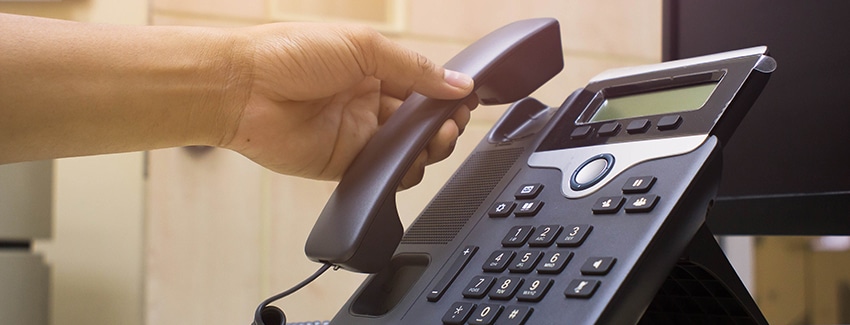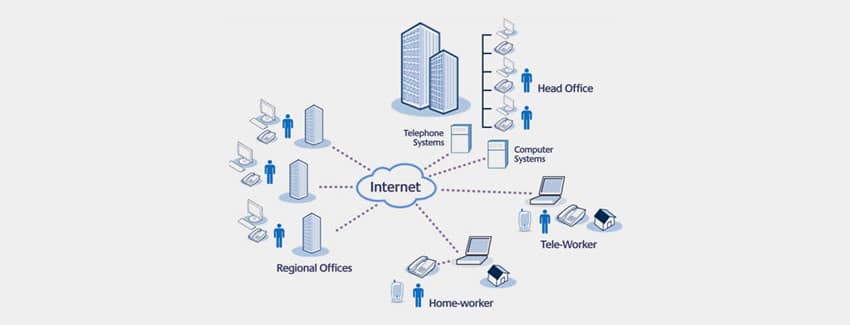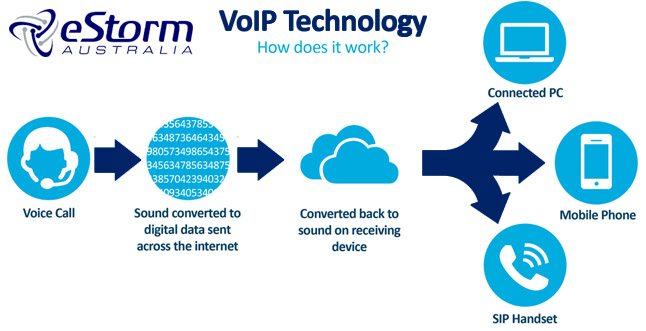As today’s business environment is so highly dependent upon greater connectivity amongst stakeholders, vendors, customers, staff members and supervisors – as well as small businesses often succeeding or failing based on the effectiveness of their communications systems – being dependent upon traditional phone companies for technology and service is often an expensive, time consuming and tedious process.
As a result, many businesses find themselves in the predicament of whether or not they should commit to upgrading to a VoIP phone solution (and then whether that should be hosted or on-premise) versus continuing to use a traditional PBX phone system. To make a decision that’s right for you you need to have a clear understanding of traditional PBX, as well as hosted and on-premise IP-PBX (VoIP).
Traditional PBX
Traditional copper based non-VoIP PBX is coming to the end of its life cycle with more copper services being turned off each day.
The main issues with a traditional PBX phone systems are:
- More expensive call costs
- Line rentals
- Traditional PBX systems are based on an increasingly obsolete technology, which results in the limiting of features
- Limited integration
- Clunky interfaces making navigation needlessly difficult and time consuming
- Minimal reporting
- Lengthy contracts
- Expensive maintenance contracts attached
- Poor resale value
- Limited functionality as you are locked into what was originally purchased
- Expensive upgrade costs, such as adding additional phone lines
- Increased running costs as traditional PBX units are a draw on power
Upgrading to an IP based phone system is now more important than ever before – but which solution is right for you? Hosted PBX or On-Premise PBX?
Hosted PBX
Hosted PBX or Hosted VoIP, also known as a Virtual PBX, is an Internet phone system or private branch exchange (the private telephone network used within a company to make and receive phone calls outside of the business) delivered as a hosted service. This means that the provider is responsible for housing the IP-PBX (Internet Protocol Private Branch Exchange), as well as maintaining and managing the technology required to provide the services to the phone system.
How it works
At the user level, an employee’s IP desk phone connects to a router where the calls, signalling and features all run through an IP-PBX server based at the service provider’s location. A monthly fee is typically paid for this service, with businesses having the ability to add and remove features as and when they are needed, which provides a significant degree of flexibility.
The advantages:
- The third party provider is responsible for running, managing and upgrading the Hosted PBX
- A significant reduction in installation, operation and maintenance costs
- No training or speciality knowledge required for running the phone system or adding extensions etc., as the PBX provider maintains the system
- Scalable with your business
- Superior integration – including CRM integration
- Simple addition of extra lines
- Low monthly service cost
- Outsourced maintenance
- Extended features, like conferencing (may come with additional costs)
- Highly flexible – this includes month-to-month payments to avoid lock in, as well as being able to transfer office extensions to mobile
- Potential to reduce telephone costs by up to 80% by leveraging SIP trunks, WebRTC, free calling to remote extensions and reducing the number of telephony lines
- Superior call quality when paired with the right internet connection
- PBX housed in a data centre environment could see an increase in efficiency and stability, as data centres are specifically equipped with cooling and other infrastructure to house them
The disadvantages:
- Connections and voice quality are as a result of the Internet connection
- Loss of power or internet results in loss of phone service, however calls can be routed to voice mail and cell phones
- Customisation of features are limited to what the provider offers
We recommend utilising a Hosted PBX solution for businesses with 1-50 employees.
Learn more about Hosted PBX / IP PBX systems and solutions.
On-Premise PBX
On-Premise PBX offers all the same benefits as a hosted PBX solution (including management of your system), with the only real difference being that your PBX system resides at your location instead of at the providers location.
This has its benefits:
- Monthly fees can be cheaper due to using your own infrastructure
- On-Premise PBX makes more sense in terms of efficiencies for larger and more complex use cases and environments
The disadvantages:
- Loss of power or internet results in loss of phone service
- Technical issues may require a qualified technician onsite, which can be subject to availability and scheduling
- Can lead to an increased power bill depending upon the size of the environment
We recommend utilising an On-Premise PBX solution for businesses with over 50 employees.
Learn more about On-Premise PBX systems and solutions.
If you’re looking for a hosted or on premise PBX phone system provider, you can find our Hosted PBX solutions here and our On-Premise PBX solutions here. If you’d like any more information or assistance, please feel free to call us at any time on (07) 3120 0640 or email us at [email protected].





